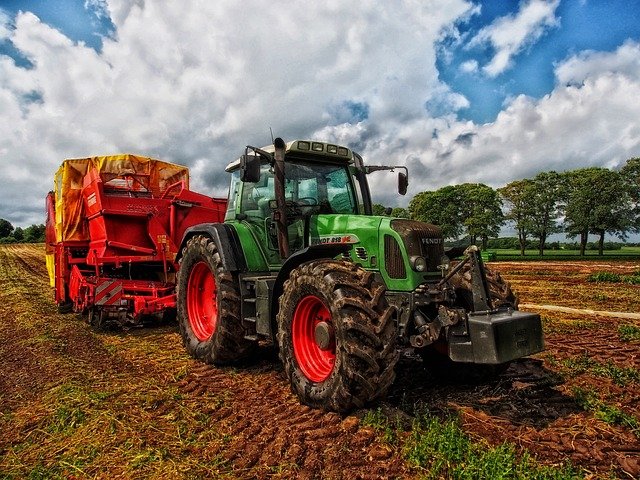Natural Pest Control: Eco-Friendly Strategies for Crop Protection

As the agricultural industry seeks sustainable and environmentally friendly solutions, natural pest control has emerged as a vital aspect of eco-conscious crop protection. This article explores the significance of natural pest control, its benefits, and various strategies that farmers can adopt to safeguard their crops while minimizing the impact on the environment.
**1. Understanding Natural Pest Control
Natural pest control involves the use of biological agents, predators, and organic materials to manage pest populations without resorting to synthetic chemicals. By harnessing the power of nature, farmers can protect their crops from pests while promoting a healthy and balanced ecosystem within their fields.
**2. Beneficial Insects as Predators
Encouraging the presence of beneficial insects serves as a natural defense mechanism against pests. Ladybugs, lacewings, and predatory beetles are among the beneficial insects that feed on harmful pests, helping to keep their populations in check. Creating habitats that attract and support these insects contributes to a well-balanced and self-regulating ecosystem.
**3. Companion Planting for Pest Prevention
Companion planting involves strategically growing different crops together to maximize the benefits of their interactions. Some plants emit natural compounds that repel pests, while others attract beneficial insects. For example, planting marigolds alongside vegetables can deter nematodes, contributing to a natural and harmonious pest control strategy.
**4. Neem Oil and Other Plant Extracts
Natural extracts from plants, such as neem oil, have proven effective in pest control. Neem oil disrupts the life cycle of pests, acting as a deterrent and inhibiting their feeding and reproduction. Similarly, other plant extracts with pesticidal properties offer a natural alternative to synthetic chemicals, reducing the ecological impact on the surrounding environment.
**5. Microbial Insecticides
Microbial insecticides harness the power of naturally occurring microorganisms to target specific pests. Bacillus thuringiensis (Bt) is a well-known example, producing toxins lethal to certain insects. These microbial solutions provide targeted pest control with minimal impact on non-target organisms, making them an environmentally conscious choice.
**6. Crop Rotation and Diversity
Crop rotation disrupts the life cycles of pests by changing the crops planted in a specific area over time. Additionally, planting a variety of crops creates a diverse environment that can confuse and deter pests. This approach enhances soil health, reduces pest pressures, and promotes a more resilient and sustainable agricultural system.
**7. Biological Control with Nematodes
Nematodes are microscopic organisms that act as natural predators of soil-dwelling pests. Introducing beneficial nematodes to the soil can help control populations of harmful insects like grubs and caterpillars. This biological approach targets specific pests without harming beneficial insects, promoting a balanced and eco-friendly pest management system.
**8. Barriers and Trap Crops
Physical barriers, such as row covers, can protect crops from flying insect pests. Trap crops, planted to attract and divert pests away from main crops, serve as a natural decoy. These eco-friendly strategies reduce the need for chemical interventions, providing effective pest control while preserving the ecological balance within the farming ecosystem.
Conclusion
Natural pest control strategies offer a sustainable and eco-friendly approach to crop protection, aligning with the growing demand for environmentally conscious agriculture. By embracing these methods, farmers not only safeguard their crops but also contribute to the preservation of biodiversity, soil health, and overall ecological balance. As the agricultural industry continues to evolve, integrating natural pest control into farming practices paves the way for a more sustainable and resilient future.
Recourses
- John Deere – Precision Agriculture Solutions
- FAO – Digital Technologies in Agriculture
- USDA – Precision Agriculture
- AgFunder – AgriTech Market Map
- Agricultural Data Coalition
- PrecisionAg – Technology Solutions for Agriculture
- Farmers Weekly – Smart Farming
- AgriTech Tomorrow – News and Articles on Agricultural Technology
- International Journal of Agricultural and Biological Engineering
- Smart Agriculture Analytics – Whitepapers and Reports
Read More useful articles:
- Smart Farming: How Technology Can Enhance Agricultural Operations
- Natural Pest Control: Eco-Friendly Strategies for Crop Protection
- Soil Quality Enhancement: Strategies for Improved Agricultural Production
- Drip Irrigation Mastery: An Effective Approach to Water Management
- Robotics Technology in Agriculture: The Future of Smart Farming
- Vertical Farming: Efficient Space Utilization for Improved Production
- Impact of Climate Change on Agriculture: Challenges and Solutions
- Building a Sustainable Farm: A Comprehensive Guide
- Digital Marketing Strategies for Agricultural Product Promotion
- Organic Farming: Benefits and Sustainable Development Techniques







